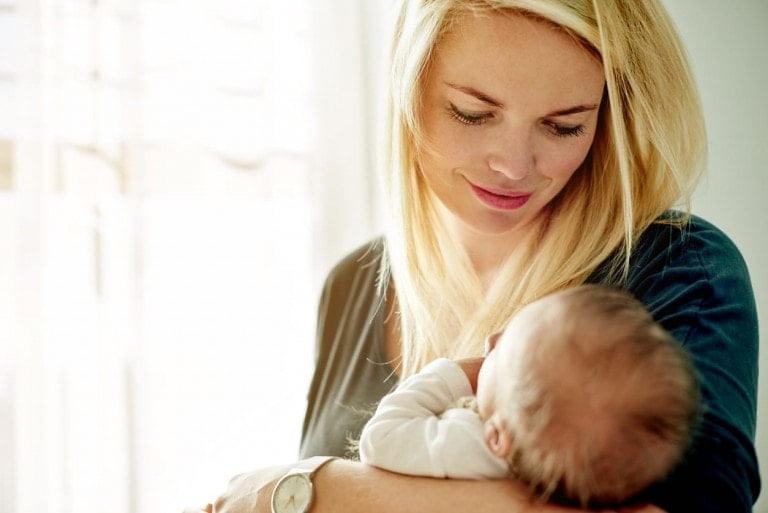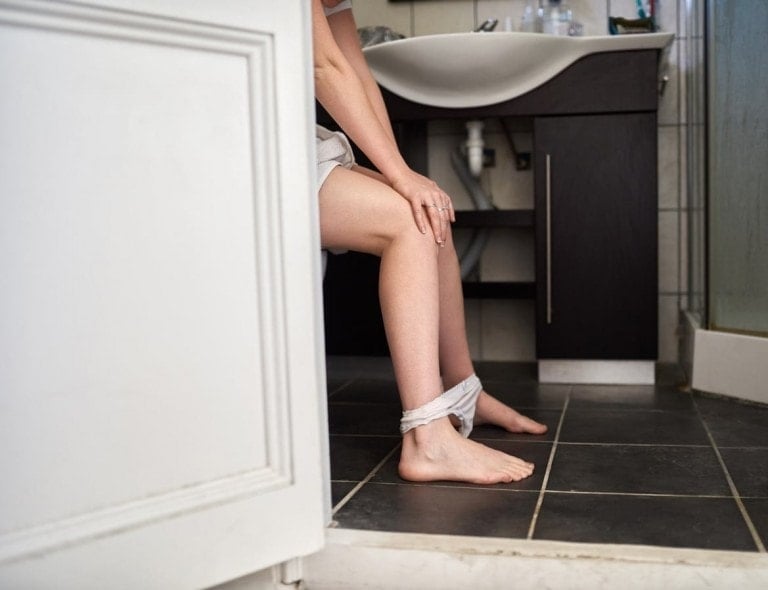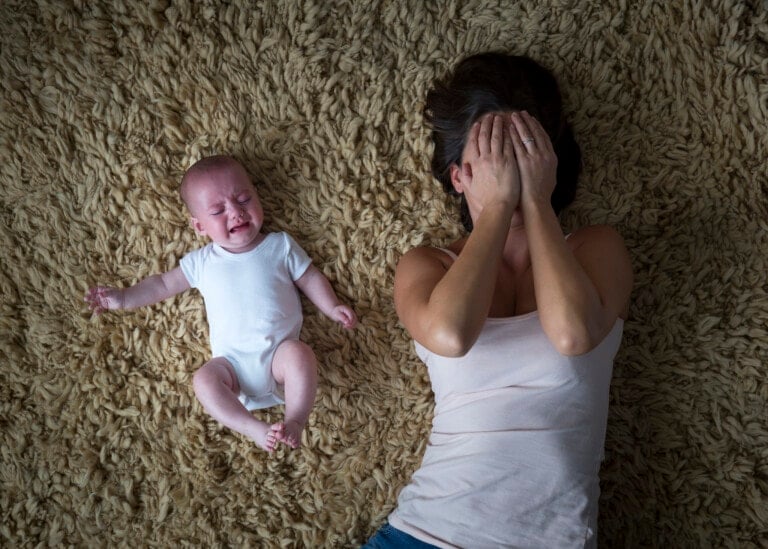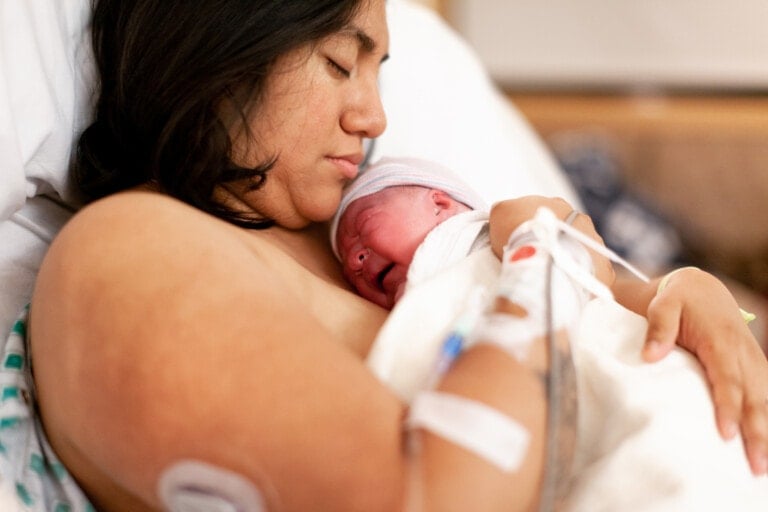The transition from pregnancy to parenthood can be a challenging experience for moms, whether their firstborn or even third baby. It’s a time filled with highs and lows and a strong mixture of emotions. One second, you catch yourself in utter amazement at how you could create such a marvelous human being. The next, you’re filled with the anxiety and fear of child-rearing. You can’t help but start to doubt your maternal capabilities. Will I do a great job at motherhood? Did all the books and articles I read prepare me enough? Can I really handle this?
Postpartum Depression: What You Should Know
It is normal to experience “baby blues,” which affects 70 to 80 percent of women.1 It is caused by a sudden change in hormones post-delivery. These hormonal surges, alongside sleep deprivation, stress, fatigue, and even isolation, can leave women feeling emotional, teary, overwhelmed. While the baby blues are perfectly normal, symptoms that don’t subside after a week or two might indicate postpartum depression instead.
Not to be confused with the baby blues, postpartum depression (PPD) lasts longer, is more severe, and affects a mom’s mental and behavioral health. Classified as a major depressive disorder, PPD also affects a mom’s daily functioning or ability to take care of their baby.
Symptoms of Postpartum Depression
Postpartum depression (PPD) is a severe mental health illness and should not be ignored. The condition affects about 1 in 7 new moms in the U.S. within the first year of having their baby.1 Nearly half go undiagnosed or do not seek treatment/support.2
PPD may not feel the same for every mom. But it’s typically marked by feelings of anger, hopelessness, irritability, sadness, or worthlessness.3 Women suffering may have moments of uncontrollable crying, have lost interest in activities they once enjoyed, are experiencing trouble sleeping (or are oversleeping), or have a lack of interest in the baby and may be struggling to bond.
PPD can also include feeling guilty and believing you’re not a good mother, having doubts that you can adequately care for your baby, or trouble concentrating, which hinders your ability to focus on your baby’s needs and wants. More severe symptoms include fear of harming the baby or yourself, including suicidal thoughts/ideation, which requires immediate attention and help.
According to the NCBI, women are diagnosed “when at least five of the depressive symptoms are present for at least two weeks.”2 If left untreated, PPD can lead to harmful parenting practices, neglect towards the baby, a poor bond between the infant and mother, and the potential for hindering the newborn’s physical and psychological development.
Postpartum Causes and Risk Factors
There is no single reason why some mothers develop PPD. Instead, there may be several interrelated causes and risk factors that are believed to contribute to it.4,5
Hormonal
While additional research is required to determine what specifically causes postpartum depression, some experts believe estrogen and progesterone (the female reproductive hormones) can play a role.4 Both hormones dramatically increase during gestation and then drop back down to pre-pregnancy levels just a few days after women give birth. The decreased hormone levels can thus create an abrupt and drastic shift in a woman’s body, triggering an imbalance with mood and emotions.
Family history
Additionally, women with one or more family members who’ve suffered from the disorder are also at a greater risk of developing it as well.
Physical changes
Giving birth also causes numerous physical changes (and emotional ones). Managing pain from delivery, changes in self-perception and bodily changes post-pregnancy can affect self-esteem and insecurities. There is also an element of stress, fatigue, and taking care of an infant, which can take a toll.
Psychological
Women who have a history of anxiety, depression, severe mood disorders, or premenstrual syndrome are 30% to 35% more likely to develop PPD.6 Additional factors include a negative attitude toward the baby, disappointment with the baby’s gender, and a history of sexual abuse. Research has also found that those who’ve experienced PPD with a previous birth are 10% to 50% more likely to experience it again.6
Lifestyle
Several lifestyle habits can cause PPD. A poor diet and low physical activity, smoking while pregnant, and not getting enough hours of sleep, to name a few. It’s important to rest when possible and incorporate physical activity into your day to help decrease depressive symptoms.
Obstetric
An emergency cesarean section (C-section), hospitalizations during your pregnancy, a premature birth, low infant birth weight, low levels of hemoglobin, and an umbilical cord prolapse are all risk factors associated with PPD.
Social
Women who do not have a strong support system or are experiencing domestic violence in their relationships are also likely to develop PPD.
Treatments for Postpartum Depression
Postpartum depression left untreated can leave new moms feeling disjointed and hopeless. This makes it harder for them to assimilate back to their normal life and routines. Early recognition and treatment can help women recover faster to better care for themselves and their babies.
Treatment for PPD varies and depends on how severe a case is, which is decided after a maternal depression screening. Options may include anti-anxiety medication, antidepressants, or psychotherapy. However, for moms who are hesitant about medication, counseling may be the first line of treatment. It’s also important that new moms receive access to support groups that can help during this transitional period and remove feelings of isolation or helplessness.
Resources
If you or someone you know is experiencing postpartum depression and needs more help and information, reach out to one of these resources below:
- Postpartum Support International (PSI) — offers online support groups, teletherapy local provider referrals, Helpline, Online Professional training, and other services for you
- Phone crisis line: 1-800-944-4773
- Text support: (503) 894-9453
- Motherhood Understood — an online community that offers group discussions and resources via a mobile app
- The Mom Support Group — offers free peer-to-peer support group calls on Zoom calls led by trained postpartum advocate facilitators
- National Alliance on Mental Illness (NAMI) — a mental health organization dedicated to building better lives for the millions of Americans affected by mental illness
- Phone crisis line (800-950-6264)
- Text crisis line (“NAMI” to 741741) for people who need immediate assistance
- National Suicide Prevention Lifeline — offers free 24/7 helplines available for people in a crisis who may be considering taking their lives
- Call 800-273-8255
- Text “HELLO” to 741741
If you’re experiencing symptoms of postpartum depression, contact your doctor or trusted health care professional immediately to discuss what you’re feeling. There is no shame in what you’re experiencing—your health, as well as your baby’s, matters.






























